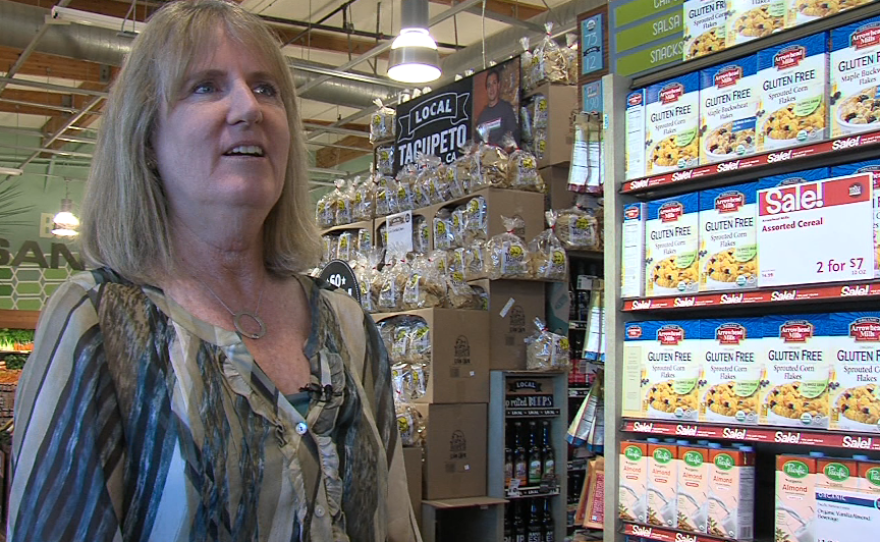Each time Roxie Johnson goes grocery shopping at her local Whole Foods, she spots new gluten-free products, which makes sense: sales of gluten-free products may have topped $10 billion last year, and food companies all want a piece of the flourless pie. But as consumers like Johnson are finding out, the commercial take on gluten doesn't always square with science.
Johnson was diagnosed with celiac disease back when hardly any companies made gluten-free anything. "Sixteen years ago, there was nothing," she remembered. "Nobody knew anything about it. And these last two years, it's just exploded."
Johnson said today, she can choose from rows of gluten-free cereals, breads and flour substitutes. And that's great, because people with celiac need to avoid gluten, the protein found in wheat and some other grains. Even small amounts can damage their digestive systems.
"You want to be on the safe side as much as possible," Johnson said.
But Johnson has also started seeing a lot of questionable products. Foods that have always been gluten-free are suddenly scrambling to advertise that fact. Even products that no sane person would eat are now labeled gluten-free. Like the shampoo prominently displayed near the registers at the La Jolla Whole Foods.
"The gluten doesn't go through your skin and into your system," Johnson explained. "You have to eat it. So unless you plan on eating that shampoo, it doesn't matter. You can use any shampoo."
Whole Foods stocks everything from gluten-free orange juice to gluten-free salsa. There's even gluten-free glass cleaner. Johnson said, "That's just going to confuse people rather than help the issue."
Gluten-free vodka?
Liquor companies are also riding the gluten-free wave. At Kill Devil Spirit Company in Spring Valley, the stills were churning as Ray Digilio showed me around. He described one of his micro-distillery's products. It's a vodka, but Digilio said it isn't like Grey Goose or Absolut. His vodka is local, unfiltered, distilled in small batches. He also makes sure people know it's gluten-free.

"The gluten-free thing was a choice that we made internally to say, let's be conscious of this trend and these people who may have this problem," Digilio said.
Digilio didn't reinvent vodka to get rid of gluten. But he sees gluten-free marketing as a way to to reassure certain customers about what's in his product.
"Arguably all vodkas could be gluten-free," Digilio acknowledged. "But it's just better to make sure you don't have anything in there."
Labeling 'Overkill'
Dr. Sheila Crowe of the UC San Diego School of Medicine said, "When it's that degree of alcohol, gluten is insoluble." She treats celiac patients and people with other types of gluten sensitivity. Some labeling is welcome, she says. But she thinks some gluten-free marketing has become "overkill."
For most of us, Crowe says there's no clear scientific reason to abstain from gluten. For the 1 percent of Americans suffering from celiac, the science is clear. Gluten is the culprit and needs to be cut out. But even for those with gluten sensitivity, researchers still aren't sure gluten is actually what's causing their headaches, upset stomachs and other symptoms.

"The science behind non-celiac gluten sensitivity is limited at the present time," Crowe said. "In some instances, it's not probably the gluten, it's the wheat starch that's causing the symptoms. In other people, it may be nothing to do with the wheat. They may have other problems. Some of them have lactose intolerance."
Crowe thinks sometimes gluten is unfairly singled out. She remembers Thanksgiving, when she and her husband encountered a gluten-free turkey. "It struck us as very funny that you would advertise a turkey—a piece of meat—as being gluten-free."
Crowe eats gluten. Quite regularly, she admits. But she knows wherever it's coming from, she's not getting her gluten from glass cleaner.






